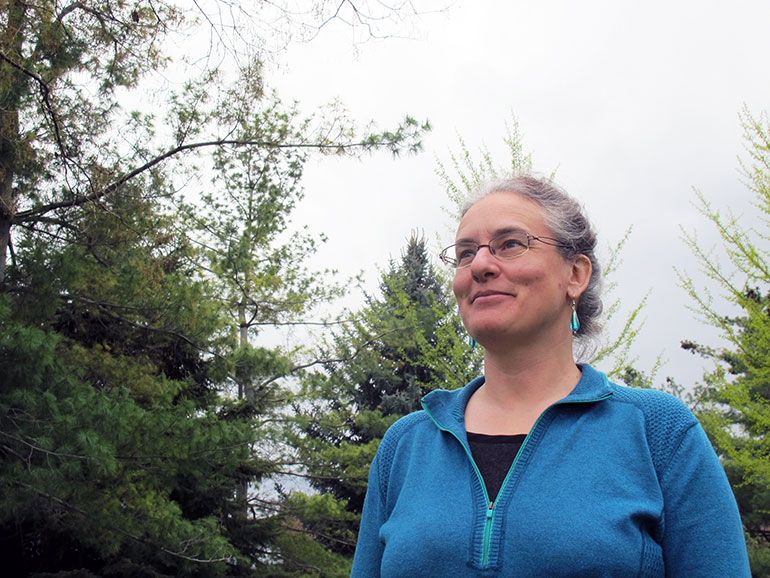
Mary Stockdale is an adjunct professor of geography at UBC’s Okanagan campus.
Fascinated by food, professor looks at the system as a circle, not a chain
Mary Stockdale represents one of the original cornerstones of the global food system: farmers.
With a family history in sheep farming, Stockdale has long been closely tied to organic agriculture. And, as a self-proclaimed food activist, Stockdale promotes everything from eating locally-produced food and supporting farmers, to community gardens to healthy food access for all.
Now, as an adjunct professor at UBC’s Okanagan campus, Stockdale has found another way to promote sustainable food systems. She has created a new course, Food Systems I: System Thinking, which looks at the food system as a circle, rather than a chain.
“We’re going to work our way through the food system, learning about each component,” says Stockdale. “The course will cover food production, processing, distribution, consumption, and finally, waste—which in an ideal sustainable system is turned into compost for more food production.”
The new course, which starts in September, is also the first campus course of its type open to students across the university, regardless of their program of study.
Stockdale says while students will come into the course with their own professional development in mind, it designed to complement their studies through its overview of the food system.
“There are a lot of niches in the food system where jobs can be found, especially here in the Okanagan,” says Stockdale. “There is potential for innovative work in agriculture, food processing, local food restaurants and retail outlets, agri-tourism, food education, local economic development and planning, and so much more.”
While theory will be a key component, the course will also include opportunities to see theory put into practice. Field trips to local farms and large institutions where food is served will allow students to analyze components of the food system in real life.
“Food affects all of us,” Stockdale adds. “Food is culture, food is politics, food is nutrition and health, food is the environment, food is economics, food is a basic human right, and food is a pleasure. Food is fascinating.”
“Through this course, students will start to understand how important it is for all the components of the food system to work together. It’s about our impact on the world through the foods we choose to eat.”
Open to all UBC students and starting this September, the new Food Systems I: System Thinking (GEOG 221) requires no prerequisites. Registration opens in June.
—30—